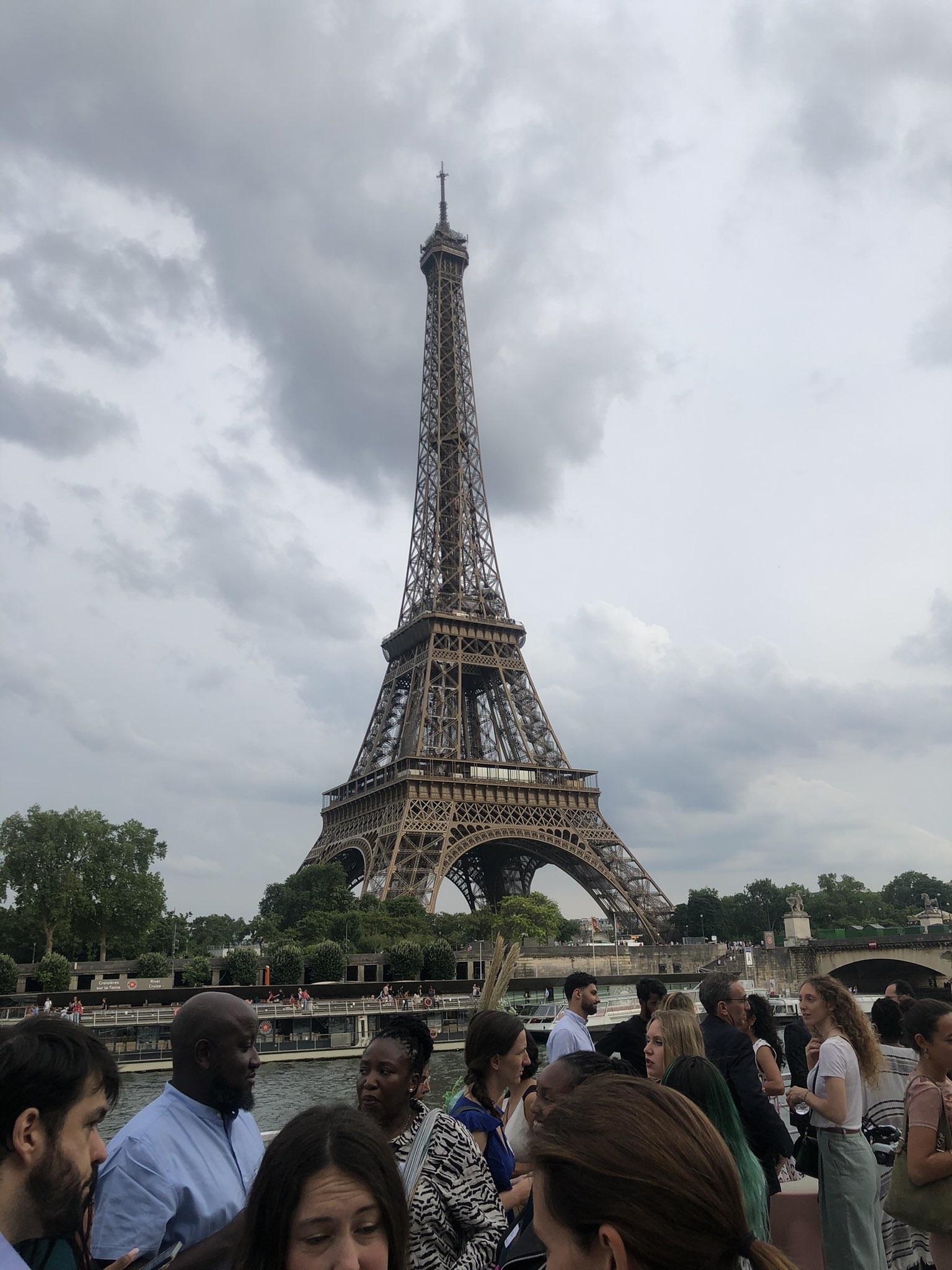World leaders will gather in Paris this week with ambitions to reimagine global financing for a new era shaped by climate change, as a cascade of crises swamps debt-burdened countries.
French President Emmanuel Macron has said the Summit for a New Global Financial Pact is aimed at building a “new consensus” to meet the interlinked global targets of tackling poverty, curbing planet-heating emissions and protecting nature.
Ideas on the table range from taxation on shipping, fossil fuels or financial transactions, to innovations in lending and a structural rethink of the International Monetary Fund (IMF) and World Bank.
France says the two-day summit, which begins on Thursday and will bring together some 50 heads of state and government, was more of a platform for ideas sharing ahead of a cluster of major economic and climate meetings in the coming months.
In particular, the French Presidency said on Friday it wanted to give “political impetus” to the idea of an international tax on carbon emissions from shipping, with hopes of a breakthrough at a meeting of the International Maritime Organisation later in June.
With trust in short supply over broken climate financing promises from richer countries, developing nations are looking for tangible progress.
The V20 group of countries on the climate frontlines, which now includes 58 member nations, has said restructuring the global financial system to align with climate targets must be completed by 2030.
“It’s great we are talking about the international financial architecture, but we have to see timelines and we have not seen those timelines,” Sarah Jane Ahmed, V20 global lead and finance adviser, told AFP.
“If we’re starting to do this stuff in the 2030s, it’s going to be so much more expensive and the trade-offs are going to be far steeper.”
The Summit for a New Global Financing Pact begins in just a few hours here in Paris.
I can feel it as I receive confirmation of participation and messages from our partners: we can make a huge difference for the planet and against poverty.
— Emmanuel Macron (@EmmanuelMacron) June 21, 2023
Leaders arriving in Paris to champion that message include Kenyan President William Ruto and Ghana’s President Nana Akufo-Addo, as well as Barbados Prime Minister Mia Mottley, who has become a powerful advocate for reform and will speak at the summit opening on Thursday.
Other attendees include Chinese Premier Li Qiang, US Treasury Secretary Janet Yellen and European Commission head Ursula von der Leyen.
Ajay Banga is also expected in Paris, in his first international meeting since taking the helm of the World Bank, promising to embrace change.
With fewer leaders from wealthier countries attending, Friederike Roder of Global Citizen said the conference could fall short of hopes for a show of unity.
“We need everyone coming together,” she told AFP, stressing that major economies are needed to agree reforms.
Economies have been battered by successive shocks in recent years, including Covid-19, Russia’s invasion of Ukraine, spiking inflation and the increasingly expensive impacts of weather disasters intensified by global warming.
United Nations chief Antonio Guterres has said the pandemic and its aftermath amounted to a “stress test” for a financial system that was set up nearly eight decades ago.
“It largely failed,” he said earlier this month, adding that 52 developing countries are in, or near, debt distress.
The World Bank plans to increase its lending capacity by US$50 billion over 10 years.
Last week it also called for drastic reform to rechannel trillions of dollars in harmful and unnecessary subsidies for fossil fuels, agriculture and fishing into action on climate and nature.
Currently the world is far off track in its aims to limit warming to 1.5 degrees Celsius above pre-industrial temperatures, risking enormous costs for nature, human societies and the global economy.
Last year, a UN experts committee said developing countries other than China will need to spend more than US$2 trillion a year by 2030 on development and to respond to the climate and biodiversity crises.
Roder said one key signal from the Paris summit would be for richer nations to show they can fulfil existing promises, like the still-unmet pledge of US$100 billion annually by 2020 to help developing nations cut emissions and boost climate resilience.
Increasing the money available — potentially using hundreds of billions of the IMF’s liquidity-boosting “special drawing rights” — is among the calls from emerging economies, as well as a new lending strategy.
One idea championed by Barbados is a disaster clause so loan repayments can be paused for two years in the wake of a climate disaster or pandemic.
Another key point of debate is the scale of existing debts.
That will also focus attention on China, which has become a significant lender to African countries, but has been reluctant to participate in the common framework for debt restructuring.
The Paris summit can bring a lot of issues “out of their niche”, said Louis-Nicolas Jandeaux of Oxfam, noting, however, “a gap between the initial stated ambition of the summit and the reality”
SOURCE: AFP/PACNEWS














